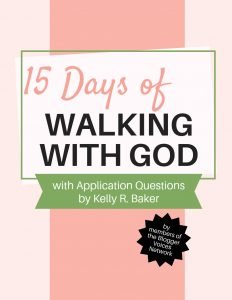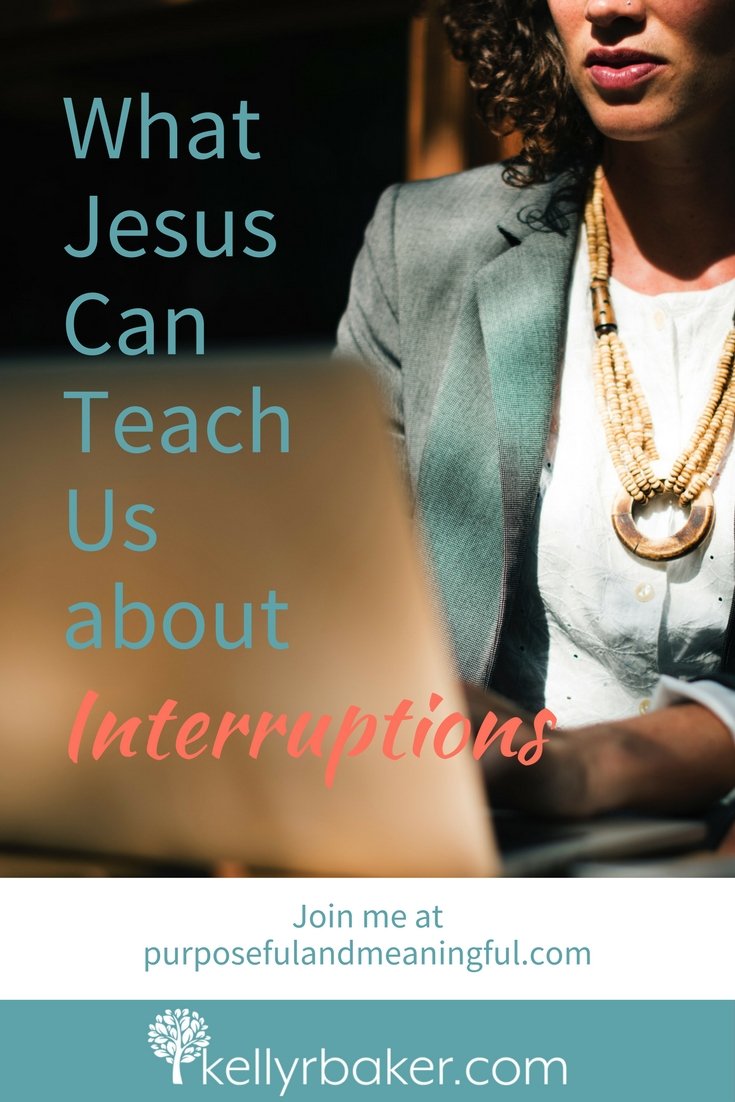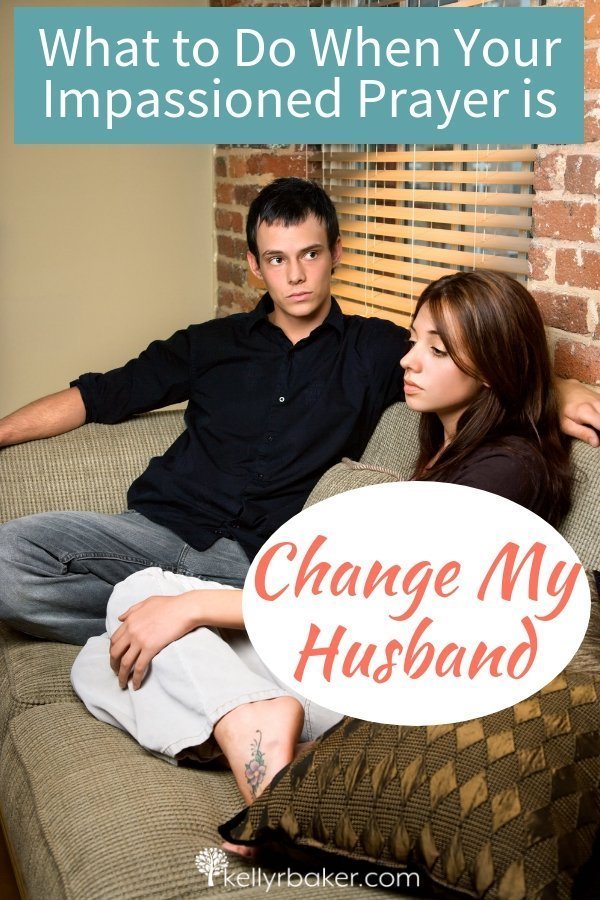Walking with God Through Heartache
Welcome to Day 6 of our #GodlyAdventure. Have you ever experienced heartache? Especially enduring pain—that you caused? Anita Ojeda transparently shares her story of walking with God through heartache.

At the time, we thought we said the right things. We thought we spoke in love and Christian admonition. Unfortunately, in our urge to correct and to help Sarah, our daughter, make good choices, we spoke without first letting the Holy Spirit filter our words.
“What you’re doing is prostitution,” we told her.
Sarah heard, “You are a prostitute.”
“You’re selling yourself for things instead of money.”
She heard, “You’re a hooker.”
“We raised you to make good choices. What’s wrong with you?”
She heard, “You’re worthless.”
To make matters worse, we wounded her during her darkest hour—during her first week in a psychiatric hospital. We had man’s approval for sharing our concerns, but we failed to consult God. Her psychiatrist advised that we bring these difficult topics up while she was in supervised care—in case she felt suicidal after our conversations.
Thousands of miles stretched between us. Disembodied voices over the phone heaping loving words of well-intentioned condemnation. But those voices didn’t sound the way we thought they did. Our daughter had every reason to resent us, hate us, and hold a grudge against us.
Years later, she shared that her conversations with us caused her to run to her room and scream into her pillow. Once she calmed down, she would write hate letters that she never sent.
At the time, we thought we said the right things. We thought we spoke in love and Christian admonition. @blestbutstrest #GodlyAdventure #BloggerVoicesNetworkAfter the Psych Ward
When the hospital released her, I felt so frustrated. They had shared her diagnosis with us—bipolar disorder—but nothing else. No after-care sheet like the hospital gave us after she broke her arm. Not even phone numbers or websites that the patient’s family might find helpful. Nothing.
I researched on my own. As I read, I came to the horrible realization that all the things our daughter had done were not under her control. For the first time, I really understood that mental illness is an illness—not a cop-out, not an excuse, but an honest-to-goodness sickness in someone’s brain.
My actions in condemning people in my mind for their perceived weaknesses as sufferers of mental illness haunted me. My unkind words to our own daughter haunted me, too.
The road to recovery took time. It took time for the psychiatrist and our daughter to decide on the best dose of the best medication. During that time, Sarah suffered from hypomania. During hypomania, the brain still misfires causing an electrical storm that messes with a person’s reasoning.
Our 21-year-old daughter often acted like a preteen. By this point, we understood the why, but the reality was hard to cope with. I prayed constantly for the Holy Spirit to guide my words. I didn’t want to say anything else hurtful.
The Slow Road to Recovery
I found a book to help me through this stage of Sarah’s recovery—The Bipolar Disorder Survival Guide. The book, written for both family members and those who suffer, helped me see that Sarah needed to control the situation. I needed to back off and let her make important decisions.
Instead of giving directives, I learned to ask questions. Her answers didn’t always make sense to me, but they allowed us to have open conversations. Somewhere during that time, I think I apologized for our behavior. For not understanding.
But maybe not. Maybe that came later, as we wrote a series about our experiences for my blog. During that time, we each shared our stories—with each other and with the world. We came to know each other better and to understand each other’s perspective. She had returned to college a thousand miles away, so my apology may have been via text or email.
I do know that I have never felt condemned for MY actions by anything she has said, done, or written. Her forgiving heart humbles me.
What I Learned About Walking with God Through Heartache
First of all, I learned that all relationships will produce disappointment and heartache—even those with our children. We each have a choice, though. We can let that heartache help us learn and grow, or we can allow it to make us bitter.
Knowledge is power. When my husband experienced a catastrophic cancer diagnosis, I devoured all the information I could find in order to come alongside him and help him. Once our daughter had a diagnosis, I did the same thing. I had to put aside preconceived ideas about mental illness and the relationship I imagined I would have with my adult daughter. I believe our relationship is stronger and better because of what we went through.
Mental illness, whether it comes in the form of anxiety, depression, bipolar disorder, schizophrenia, Alzheimer’s, or obsessive-compulsive disorder, will put a strain on relationships—just like any other illness. Cancer put a strain on the relationship between my husband and me. As he recovered, I had to leave caregiver mode behind and once again enter into an equal partnership. Mental illness is no different. Relationships will go through periods of discovery, crisis, recovery, and rebuilding.
No matter what the context, learning to ask questions instead of giving directives will help relationships move forward. Instead of saying, “Why did you do that?” try asking, “How did you feel when you did that?” Don’t say, “You need to stop making rash decisions!” Instead, ask, “How did that work out for you?” Invite dialogue, don’t rain opinions. Say, “Tell me more,” instead of, “That was a dumb thing to do!”
I had to put aside preconceived ideas about mental illness and the relationship I imagined I would have with my adult daughter. @blestbutstrest #GodlyAdventure #BloggerVoicesNetworkIn Addition, Own it and Grow
Don’t shy away from acknowledging your part in the problem and asking for forgiveness. “Sarah, I should have prayed before I spoke. I deeply regret the heartache I caused you. Will you forgive me?” It has taken me years to learn to apologize without sounding like I want to make excuses for myself. Simple, specific, and sincere works best.
As a woman who rarely feels shy about sharing my opinion, I’ve learned the importance of praying before speaking. The verse I pray over myself comes from Psalm 19:14(ESV).
Let the words of my mouth and the meditation of my heart be acceptable in your sight, O Lord, my rock and my redeemer.
I wish I could have sheltered Sarah from all she experienced, but that experience made each of us stronger and better-equipped to face future storms in life. It also allowed us to reach out and bless other people who walk through similar storms.
What’s your story of walking with God through heartache?
 Anita Ojeda has a passion for educating people about the early signs of mental illness in adolescents. She blogs at www.anitaojeda.com in between preparing lessons, teaching classes, and toddler wrangling her grandson. When Anita’s not lurking outdoors looking for and photographing rare birds in odd places, you can find her hanging out with her husband, camping with her kids, or mountain biking with her students.
Anita Ojeda has a passion for educating people about the early signs of mental illness in adolescents. She blogs at www.anitaojeda.com in between preparing lessons, teaching classes, and toddler wrangling her grandson. When Anita’s not lurking outdoors looking for and photographing rare birds in odd places, you can find her hanging out with her husband, camping with her kids, or mountain biking with her students.
What a blessing! The Walking with God online event and giveaways are great! #BloggerVoicesNetwork #GodlyAdventure
Did you enter the giveaway yet?
- Week 2 – Walking with God Through My Mistakes of Hurting Others Giveaway: one winner of Battle Ready: Train Your Mind to Conquer Challenges, Defeat Doubt, and Live Victoriously book by Kelly Balarie AND Sheila Walsh’s new book It’s Okay Not to be Okay; one winner of Part One of the Find Your Calling Study & 50% off the entire study and one copy of 31 Specific Prayers for Your Marriage eBook; one winner of a Watercolor Flowers Christian Journal and a copy of Worthy: Believe Who God Says You Are eBook.
- Week 2 – Special Blogger Giveaway: one winner receives 1 month free to Easy Blogging Tools.
Get the Event Devotional eBook!
Want to encourage others in their walk with God? Use the icons below to share this post!
*shared at some linkups


 Anita Ojeda has a passion for educating people about the early signs of mental illness in adolescents. She blogs at
Anita Ojeda has a passion for educating people about the early signs of mental illness in adolescents. She blogs at 






I think discernment is the key, because everyone can’t be mentally ill. We all have our trials, being taught the love of Jesus, and why we do things the way we do is a part of it, perception and deception. The man who buried his talents thought the master a hard man, just the way many perceive God and not the grace of sending Jesus, of course som will also abuse that grace.
You’re right! Not everyone is mentally ill, and we certainly need to pray for more discernment :). Only about 2.6% of the population suffers from bipolar disorder (but that’s a whopping 5.7 million people). Many more suffer without a diagnosis. When we see the warning signs in a family member or close friend, we should pray for discernment and seek help. I just wish we would have know that there WERE warning signs!
“I do know that I have never felt condemned for MY actions by anything she has said, done, or written. Her forgiving heart humbles me.” — Yes, merciful people have taught me so much more than harsh words from a pulpit or where ever they came from.
Thank you for sharing part of your story, Anita. Your daughter is blessed to have you as a mom. I too struggled with anxiety and depression, and I have people in my life who are walking the journey of BPD. I have also been on the flip side where I thought I was doing what was right, and am glad to have learned as you did–there’s another, a better way.
So thankful God is patient with us and never tires of loving us and showing mercy,
I love too how you said we should “invite dialogue,” which is a great practical thing to remember when I am frustrated with my children. Love and hugs!
I’m so glad we can learn from each other! Asking questions and listening in humility are two of the biggest skills I’ve been learning lately.
Anita, thank you for your transparency here. Your words are challenging and encouraging. I’ve had to learn to really watch my words with my boys. I still walk into attitude minefields where things are spoken in tones that don’t help. I so appreciate your reminder to filter my words, and my heart, through God first.
I’m glad your relationship with Sarah has improved.
🙂 The older I get the more ‘attitude’ bothers me–but the more I understand that staying neutral during attitude is vital to good communication! One of our ‘boys’ cursed at a staff member last night. The staff member called us, and we sent the boy over to resolve the issue. When he came back, the staff member didn’t feel as if he’d been apologized to properly, but as we dug deeper, our boy started crying. Something else is going on, and the disrespect was just a small outlet for a big burden he’s carrying. I’m so glad we’ve learned better skills for communicating with young people!
Thank you for such an honest and forthright description of your struggle with your “unfiltered” words. There have been many times I wish I could take back words that I later realized were harsher than I meant them to be when talking with my children. When you said that the incident made you both stronger, I exhaled and gave thanks. It probably strengthened the bond between you and your daughter, too.
She and her sister are my best girlfriends :). Pedro is my best friend. We are blessed.
In my ladies bible study we are studying Job. I signed up because it said it was a bible study on joy. Well, later I found it was about Job, which didn’t sound very cheerful. But it has been a good study. But the thing I keep coming back to is Job’s friends who keep giving him bad advice and not so wise council. We keep calling them the foolish friends in the study. But the thing is I am not sure I would have been much wiser or done a better job if I was in their place. I know not in my younger days. I pray now I would have a little more wisdom, grace, patience, and would have asked questions and listened more than I talked. Even so, we do the best we can. We fumble along. Ask for forgiveness. And that seems to be the way of life. Learning on the other end. And while Job’s friends gave bad advice, they did come and spend days with him and try to help them. And a lot can be said for them trying to be there for him.
I appreciate your honesty Anita. Trying to maneuver an unfamiliar place and event. May we learn from each other and better help those walking through heartache.
Amen! I giggled when I read your reply–joy and job could be easily confused! I’ve had my share of Bildad moments (both from would-be Bildads and ME acting like Bildad). Having a teachable heart is what’s most important!
Anita-
I have had the blessing of following your story and your daughter’s for a few years. What has impacted me the most is how you shared not only your transformation in the journey but your daughter’s too. Your willingness to admit your mistakes and point us in the right direction has helped me in so many ways.
Learning how to speak in grace and truth requires not just head knowledge, but heart knowledge too. Thank you for your wisdom.
Aww, thank you! We are always glad to share our story because it is a redemption story and even though we don’t like all the parts of it, we know that God is writing it in ways that allow us to help others.
Anita – Thank you for sharing your families story. Is there an easy way to search your entire story on your blog. I will be sharing with a group I host for families that have a loved one with mental illness.
I too have had to apologize for the hurtful things I said out of ignorance or attempting to help. I bet I have a lot more to apologize for that I am not even aware I spoke.
Yes, praying before speaking is key.
Blessings, Maree
Illnesses are so tough to battle even after they are diagnosed. Recognizing the steps to take though helps us to begin coping for ourselves and for those we love.